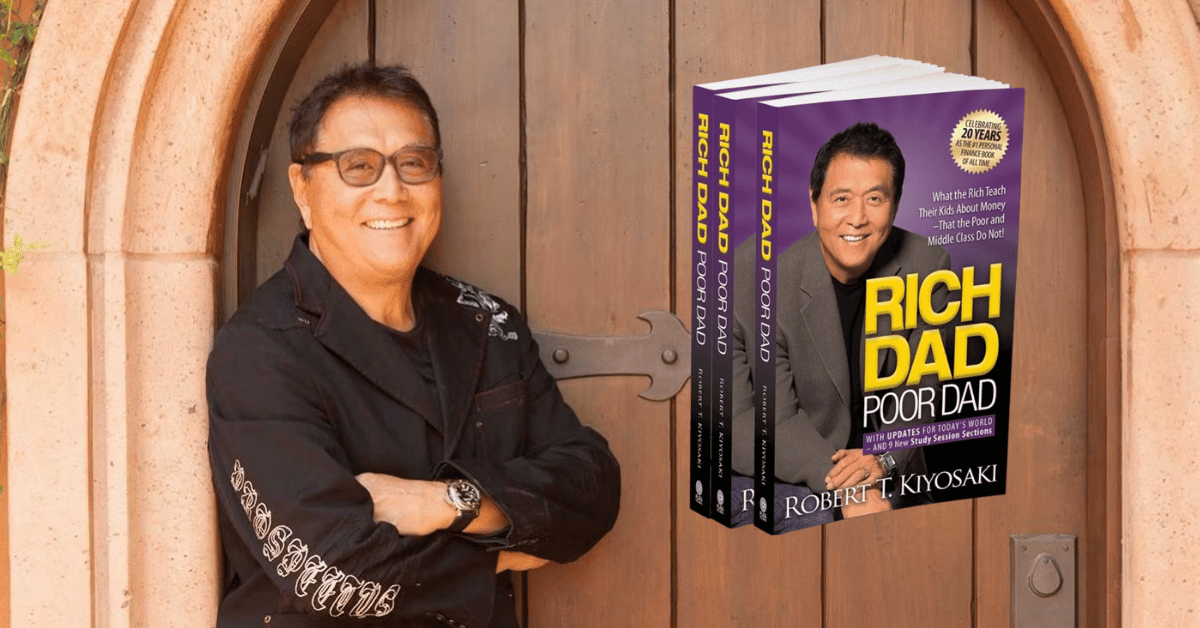How “Rich Dad, Poor Dad” Changed My Perspective On Money
They claim that a good book can alter your perspective on life. For me, the book is “Rich Dad Poor Dad” by Robert Kiyosaki. It’s more than just a book; it took me on an adventure that altered how I viewed riches, success, and even the meaning of life. I’m delighted to share my story with you and how this incredible book has the capacity to do the same for you.
The Day I Met My “Rich Dad”
Because of the mental and financial difficulties I was having with money, a close friend recommended the book “Rich Dad Poor Dad” to me. I was, to put it bluntly, locked in the conventional paradigm of finish school, land a nice career, put away money, and retire. That wasn’t how life was going, though. The mounting debt had me feeling like I was on a hamster wheel with no stop in sight.
In the first chapter, the author contrasts his own father, whom he calls “Poor Dad,” with the father of a friend, whom he calls “Rich Dad.” The first chapter read like a reflection of my own life. It dawned on me that I was mimicking my “Poor Dad,” a man of considerable education but frugal habits. If I was serious about making a difference, I needed to take notes from “Rich Dad, Poor Dad.”
The Mindset Shift
If you’re want to change your perspective on money, “Rich Dad Poor Dad” will show you how to achieve just that. The book’s emphasis on the value of monetary literacy really grabbed my attention. When I realised that it is not so much how much money you make as what you do with the money you have, I had my “aha” moment.
Kiyosaki explains the difference between having assets versus having debts. The distinction between the two was revolutionary. It was questioned how I was defining an asset. Not only did this include real estate and equities, but also businesses, investments, and creative works. On the other hand, liabilities were expenditures that had to be paid out of pocket. For instance, my car is not the status symbol I had come to assume it was.
“Rich Dad, Poor Dad” emphasises the value of learning about personal finance. Knowing how money works is more important than having a degree in finance. Learn it, and you will own the financial world. The more I read, the more I realised that my financial difficulties stemmed from my lack of financial literacy.
The book breaks down financial concepts like assets, obligations, and cash flow while making difficult topics easier to understand. It opened my eyes to the possibility of achieving financial independence through the acquisition of assets that generate income. I began exploring potential sources of passive income, such as the stock market and real estate.
Achieving Success Despite Setbacks
The failed lessons I picked up from “Rich Dad Poor Dad” were invaluable. Unlike “Rich Dad,” “Poor Dad” encouraged his children to learn from their mistakes. Achieving success requires overcoming obstacles. It’s a natural aspect of getting smarter. Kiyosaki taught me to embrace failure as an opportunity to grow.
There’s a quote from the book that stuck with me: “The primary difference between a rich person and a poor person is how they manage fear.” I forced myself out of my comfort zone and into business for myself. It was daunting at first, but my mentality adjustment gave me the confidence to face those anxieties head-on.
Cause and Effect
As my understanding of personal finance increased, I began to see a difference in a number of areas of my life. It wasn’t only about the money; it was also about gaining independence and agency. My relationships, work, and health were all affected by this change of perspective. I broke free from the never-ending cycle of worry about money. It felt great to finally be able to make educated choices regarding my life.
Sharing the Wealth of Knowledge
The message of “Rich Dad Poor Dad” isn’t simply about self-improvement; it’s also about imparting wisdom to others. The book encourages its readers to take charge of their personal finances and teach this lesson to the next generation. This is a philosophy that struck a chord with me.
I began sharing the lessons I’d learned with my family, friends, and even my own children. True riches, I’ve learned, can’t be measured in dollars alone, but in the lives we touch. Giving them sound advice on how to manage their money was helping others, too.
“Rich Dad Poor Dad” is not just a book; it’s a life-altering experience. It altered my perspective on money and propelled me towards independence from it. I want to tell you about my experience in the hopes that it would help you. Making money is important, but learning about money may change your life for the better.
As Kiyosaki says, “The single most powerful asset we all have is our intellect. If properly educated, it has the potential to generate vast sums of money. The book “Rich Dad Poor Dad” serves as a mental handbook. It worked for me, and it might work for you. Get a copy, start reading it, and see your entire perspective on money shift for the better.



